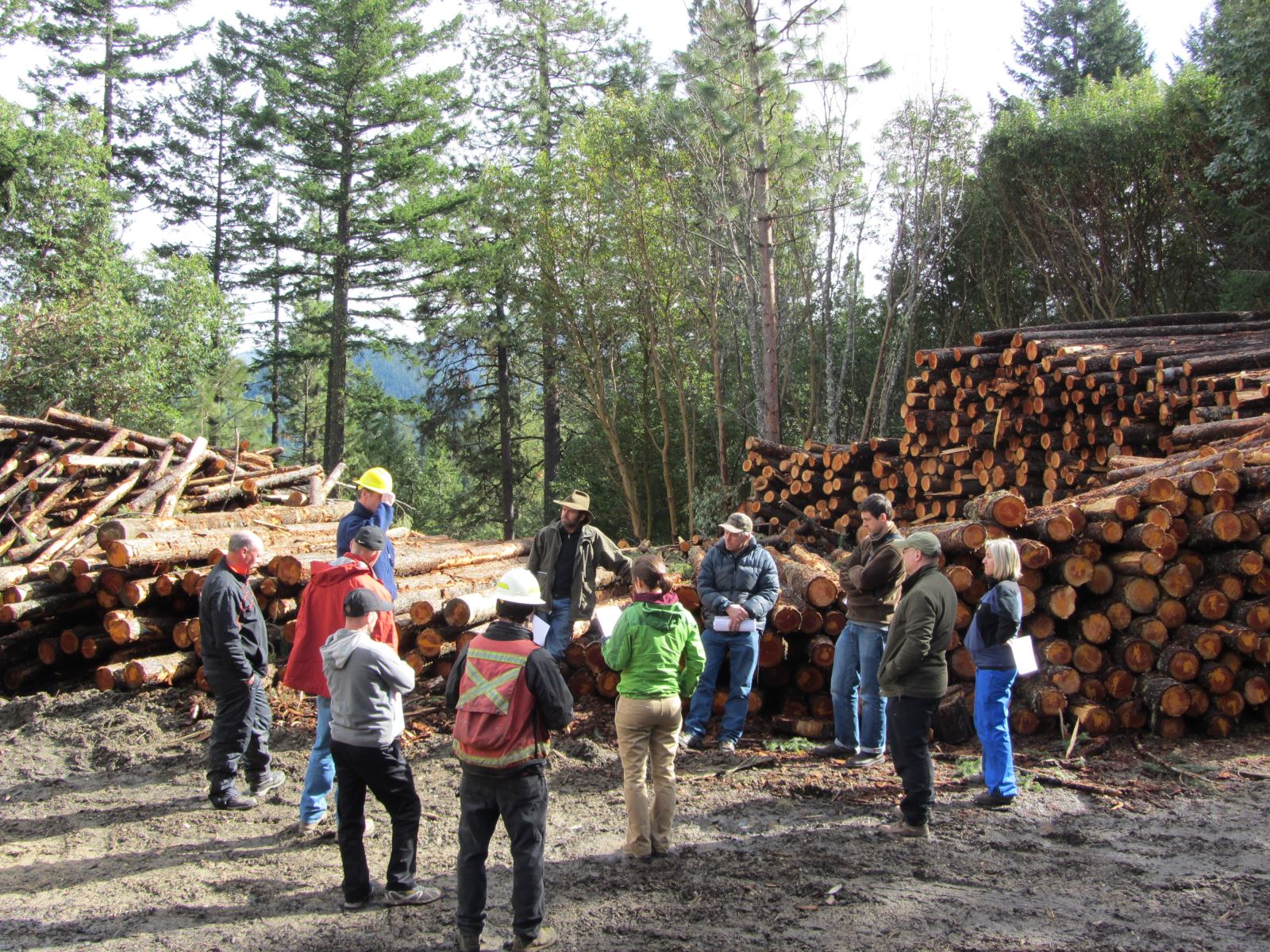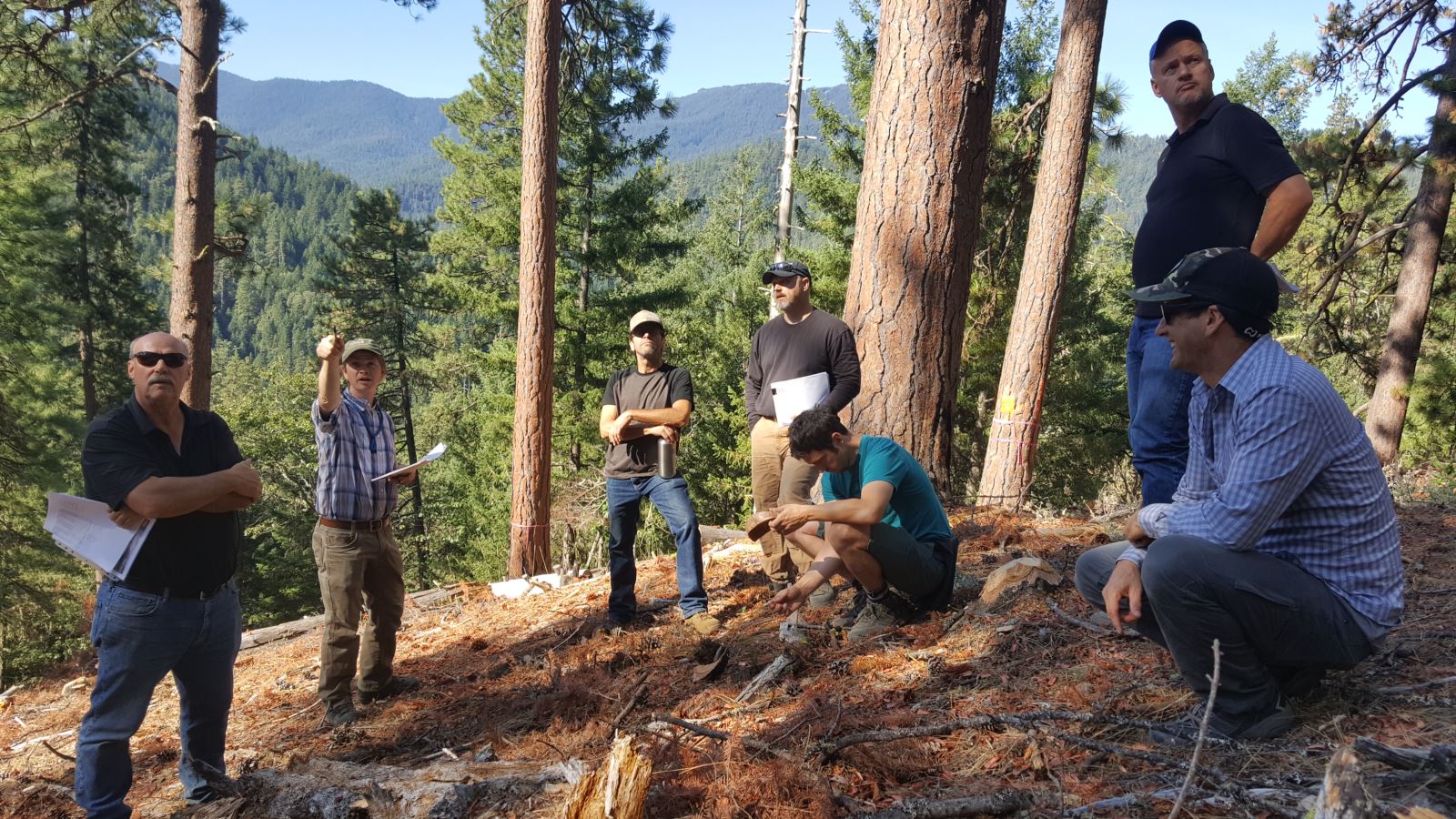Implementation Monitoring

helicopter logging in 2013. Photo courtesy of
Kerry Metlen, The Nature Conservancy
The Implementation Review Team (IRT) provided external technical review of proposed and ongoing work for the Ashland Forest Resiliency (AFR) stewardship project. This team was composed of Max Bennett from Oregon State University Forestry and Natural Resources Extension, Joseph Vaile of the Klamath-Siskiyou Wildlands Center, and George McKinley of the Southern Oregon Forest Restoration Collaborative. Their review and inputs were coordinated for the AFR partners by Dr. Kerry Metlen of The Nature Conservancy.
The IRT participated in twelve field tours of ecological thinning and prescribed fire, with review focused more intensively on ecological thinning treatments with merchantable logs (restoration byproduct) to be removed and sold. Field reviews occurred before and after most treatment implementation, as detailed plans were prepared and packaged by AFR partners. In addition to data summaries, field tours used example marking on trees >8 inches in diameter at 4.5 height feet proposed to be harvested commercially. Follow up, post treatment visits were sometimes included
Important themes from the IRT:

2016 of opened conditions resulting from treatment
(Photo courtesy of Darren Borgias,
The Nature Conservancy)
- Very positive assessment of implemented treatments, resulting from skilled operators, rigorous contract oversight, and a focus on ecological outcomes
- Strong support for treatments that reduced wildfire hazard while restoring open forest conditions, particularly near large old pines and hardwoods
- Shared acknowledgment that with “social license” more thorough and comprehensive thinning could have better achieved ecological and fuel reduction outcomes
- Strong support for full restoration that includes ecological thinning, pile burning, and maintenance underburning with a range of intensities
- Reluctance to support treatments grounded in directly addressing forest pathogen concerns
- Strong acknowledgement of the need for more intensive and extensive treatments to address wildfire hazard and restore climate adaptive forests with ecological thinning and underburning
- Elevated importance of retaining large dead wood and snags when consistent with worker safety
Implementation Review Team (IRT) - Coordinated by The Nature Conservancy, the IRT committee provides technical advice to the AFR project cooperators on proposed and completed implementation of treatments and activities.
The IRT is made up of representatives from the following organizations:
- Southern Oregon Forest Restoration Collaborative
- Klamath-Siskiyou Wild
- Oregon State University Extension Service